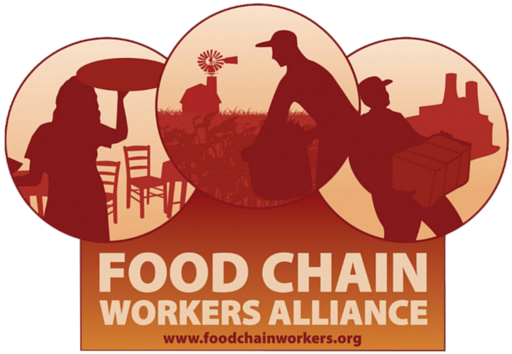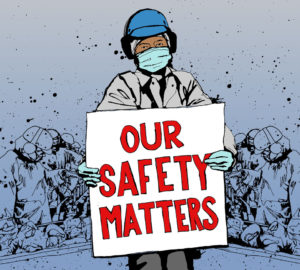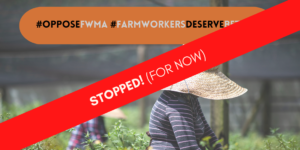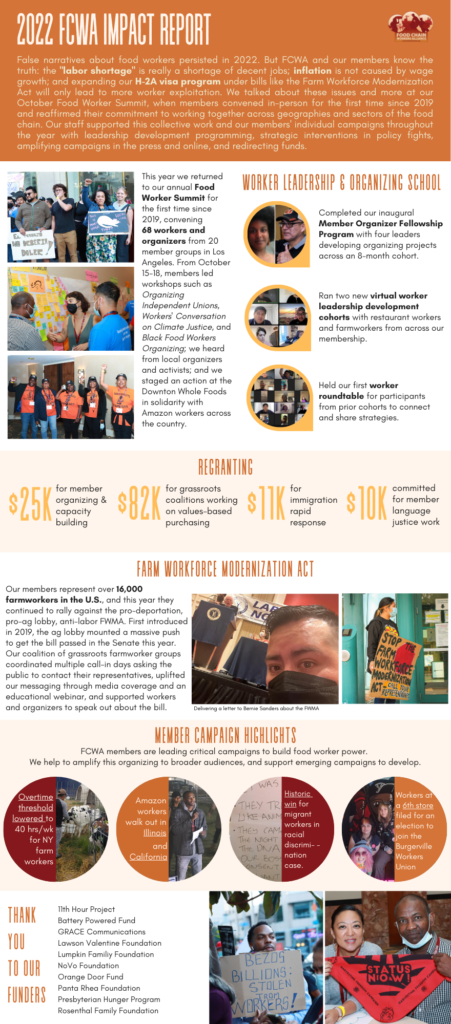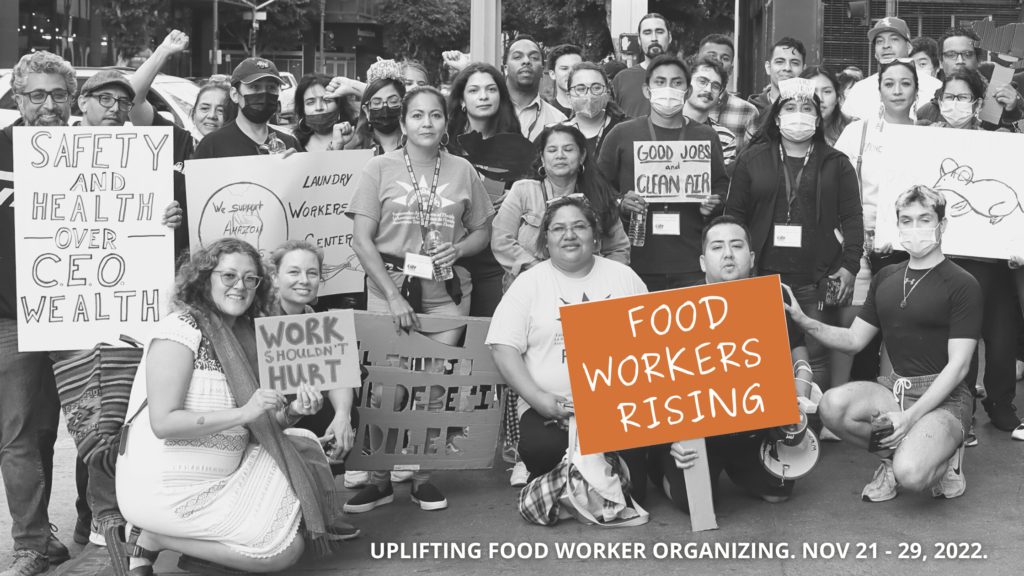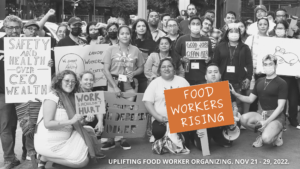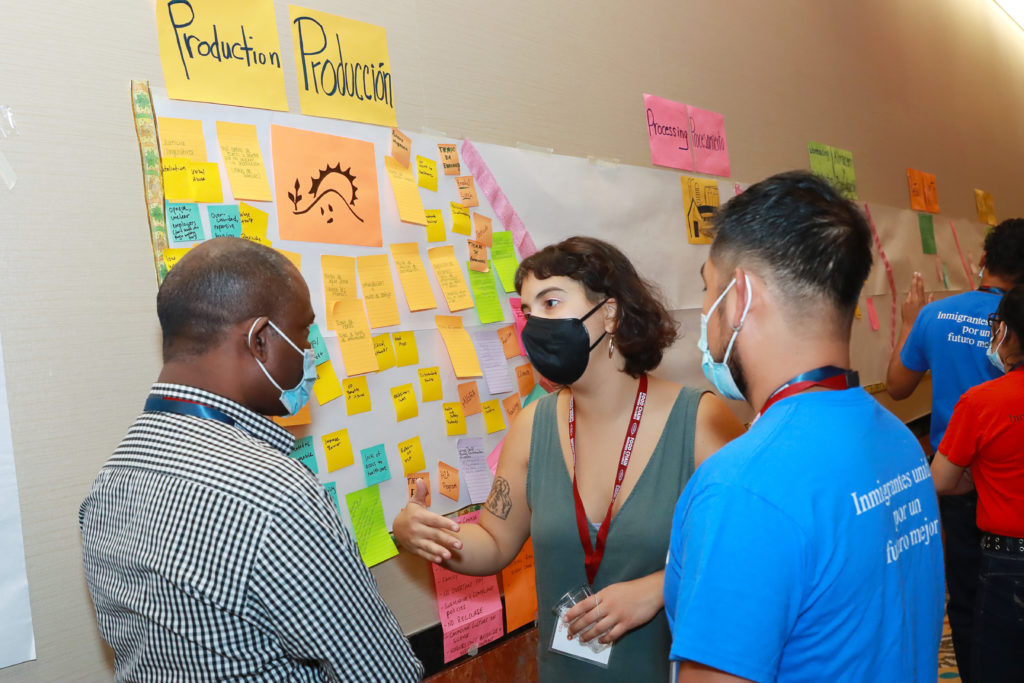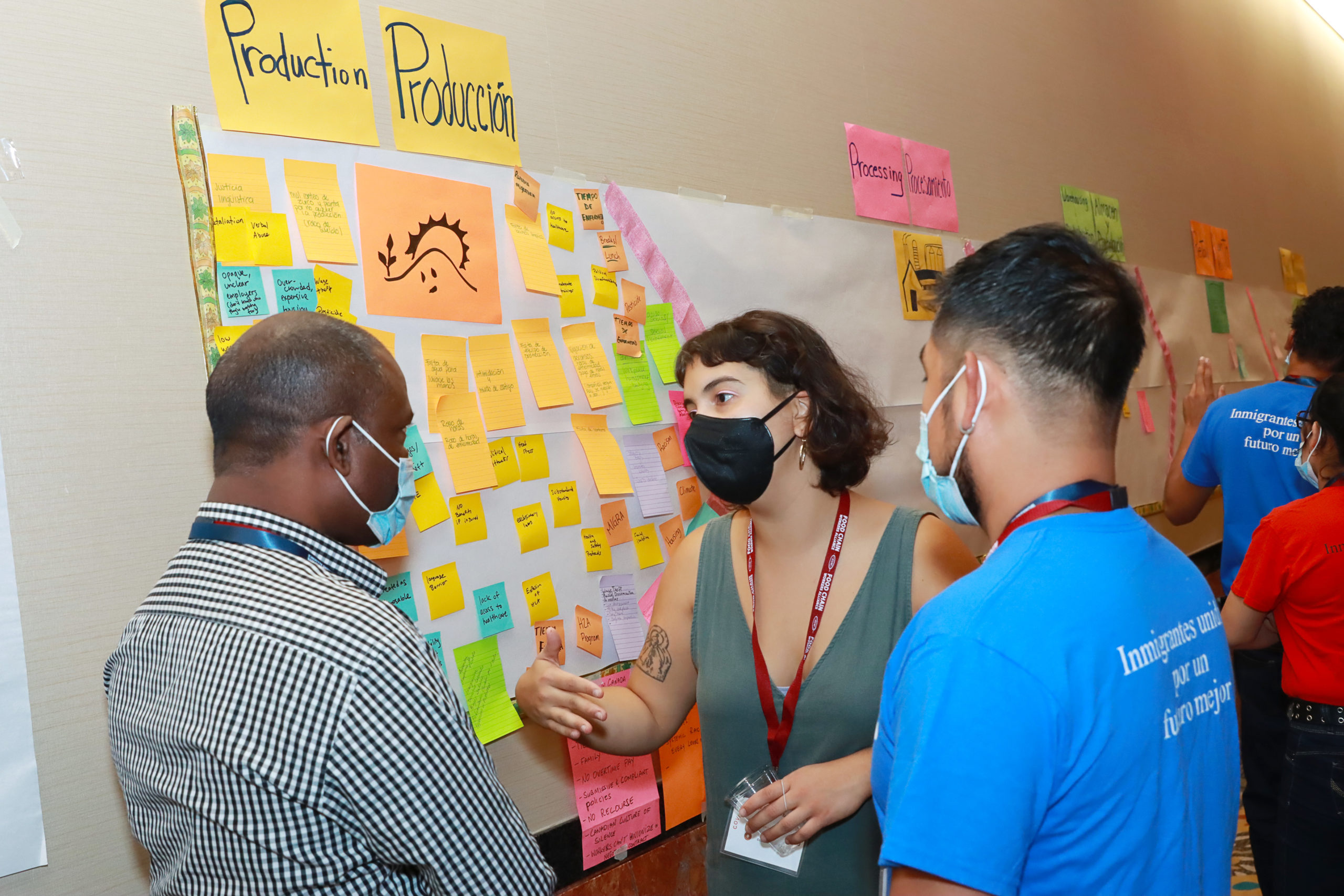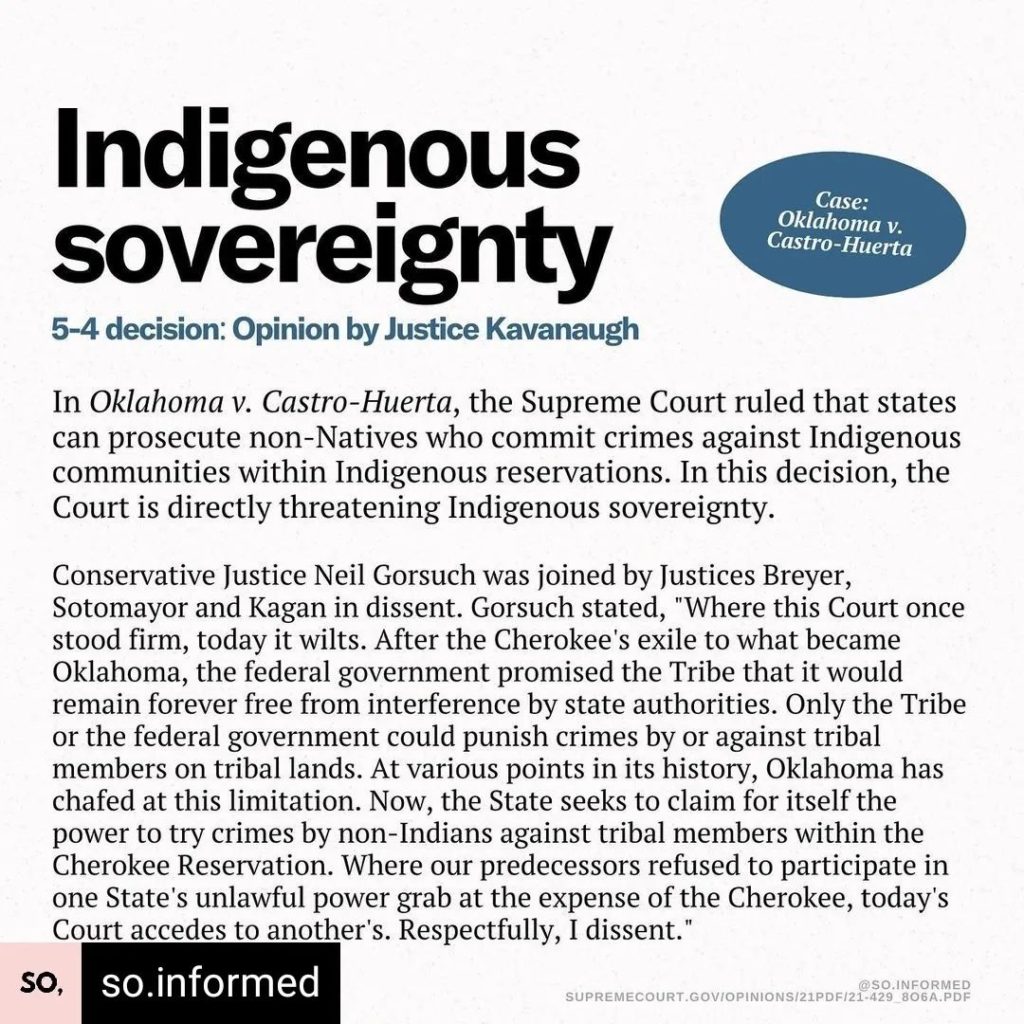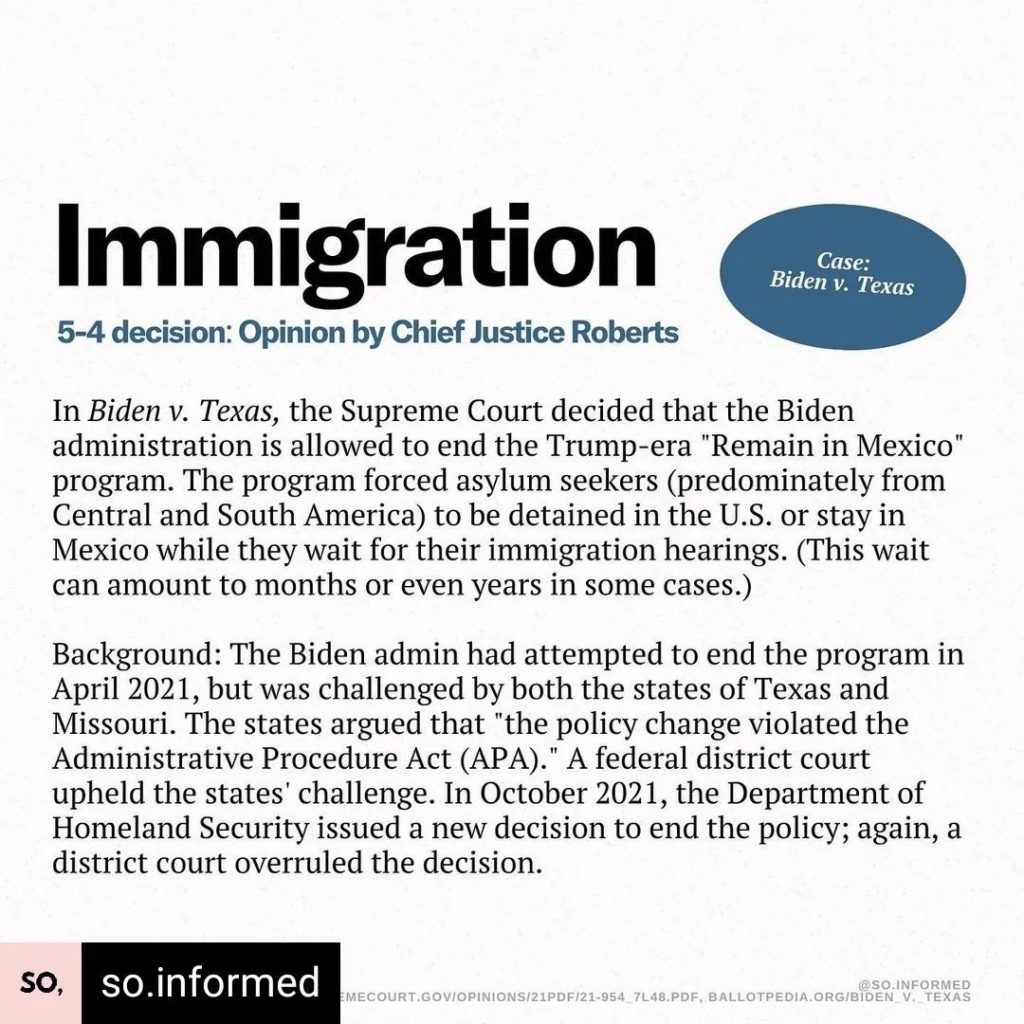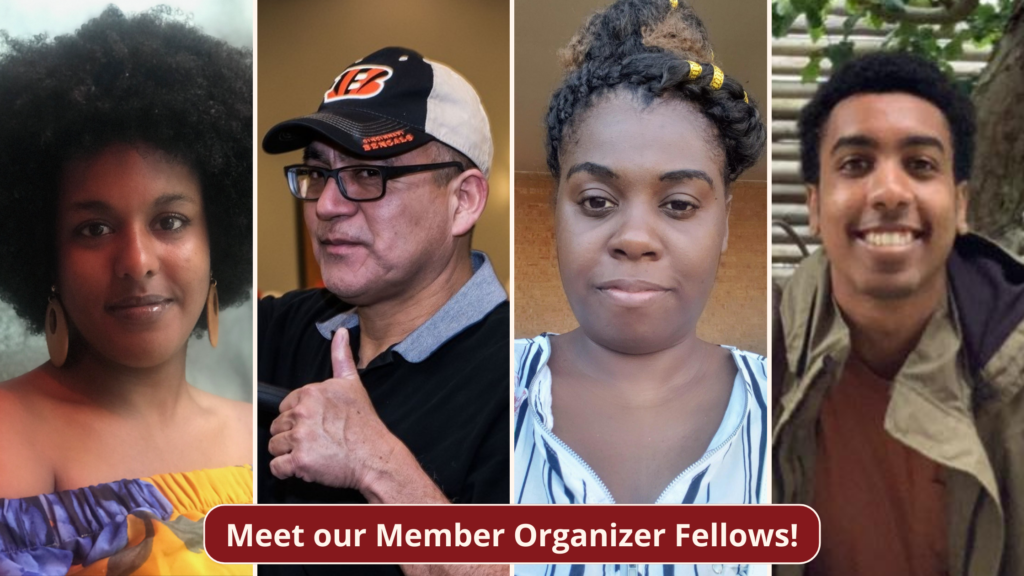
“Current labor laws protect companies more than workers. Many times, we are being forced to work under unsafe and unhealthy working conditions without the protection of the law. They have been calling us essential workers but we are still being treated as disposable. It’s time to pass laws that truly protect workers.”
– Meat processing worker with 18 years of experience in one Missouri facility
(español abajo)
Meat and poultry processing workers have been organizing for safe working conditions and a voice in their workplace for decades. Many have spoken out about the hazardous and exploitative conditions in pork, beef and poultry plants across the U.S. – the vast majority of which are owned by four massive corporations: Cargill, Tyson Foods, JBS, and National Beef Packing Co.
The majority of workers in this sector are from BIPOC communities, and when compared with the workforce at large, they are much more likely to be born outside of the US and/or lack citizenship status. They frequently report injuries from excessive and unsafe line speeds, which can create lifelong complications. Line speeds are not the only hazards: workers are forced to operate dangerous machinery without adequate training, and are exposed to harmful chemicals which can lead to poisoning and death. Workers are denied bathroom breaks and describe a general culture of abuse, fear and retaliation from employers when they try to organize or ask for changes in their workplace.
During the pandemic, meat companies pushed workers to keep working without putting critical protections in place. We now know they also used the threat of supply chain shortages to exempt themselves from nationwide COVID protocols and keep plants open, earning them record-breaking profits. With the pandemic exemption, deregulation of the pork industry, and few consequences for violations from agencies like OSHA, these conditions are only worsening.
But workers in these plants continue to organize, through grassroots organizations and FCWA members like Venceremos, Rural Community Workers Alliance and CATA, and they have a critical need for stronger legal protections. This week, Senator Booker and Representative Ro Khanna re-introduced the Protecting America’s Meatpacking Workers Act (PAMWA) as part of a package of bills tackling injustice in the food system. PAMWA would provide essential protections for workers, including limiting line speed waivers, enhancing protection from retaliation for workers who speak up, ensuring access to proper medical care, eliminating unreasonable restrictions on workers’ use of bathrooms, and requiring OSHA to develop enforceable standards to protect workers from musculoskeletal disorders and airborne diseases, while addressing the stranglehold that a handful of corporations have over this industry.
“Day after day meat processing workers sacrifice their health and safety to feed all of us in this country, despite the hazards and risks they face. This is an opportunity for congress to provide meatpacking workers with necessary legal protections that would greatly improve the safety of their workplaces while protecting their right to speak out freely against mistreatment” said Axel Funtes, Executive Director of the Rural Community Workers Alliance. “Here in Missouri, at the Rural Community Workers Alliance, we listened to our workers’ stories – the PAMWA bill includes the voices of these working people and is a vital step to reform health and safety standards across our food systems.”
While there is still much more to do to protect workers and support worker organizing in meat processing plants, the provisions in this Bill are a critically important step and we are urging Congress to support this legislation.
__________________
“Las leyes laborales actuales protegen a las compañías más que a los trabajadores. En muchas ocasiones somos forzados a trabajar bajo condiciones de empleo inseguras e insalubres sin la protección de la ley. Nos han llamado trabajadores esenciales pero todavía nos están tratando como si fueras desechables.”
– Trabajador de procesamiento de carne con 18 años de experiencia en una facilidad en Missouri
Los trabajadores de procesamiento de carne y aves se han estado organizando por décadas para mejores condiciones de trabajo y para tener una voz en el trabajo. Muchos han alzado la voz sobre las condiciones peligrosas y de explotación en las plantas de carne de cerdo, de res y the aves en todos los EE.UU. – la mayoría de la cual son propiedad de cuatro corporaciones masivas: Cargill, Tyson Foods, JBS, y National Beef Packing Co.
La mayoría de los trabajadores en este sector son de comunidades BIPOC, y cuando son comparadas a los trabajadores en general, es más probable que hayan nacido fuera de los Estados Unidos y/o carecen de estatus de ciudadanía. Frecuentemente reportan lesiones basadas en velocidades de líneas excesivas e insalubres, que pueden crear complicaciones de por vida. La velocidad de las líneas no son los únicos peligros: los trabajadores son forzados a operar la maquinaria sin entrenamiento adecuado, y son expuestos a químicos dañinos que pueden llevar a la intoxicación y hacia a la muerte. Se les niega a los trabajadores el descanso para usar el baño y describen una cultura general de abuso, temor y represalias de los empleadores cuando tratan de organizarse o cuando piden cambios en su lugar de trabajo.
Durante la pandemia, las compañías de carne empujaron a los trabajadores a seguir trabajando sin establecer protecciones críticas. Ahora sabemos que usaron la amenaza de escasez en la cadena de suministros para excusarse de los protocolos de COVID a nivel nacional y mantener las plantas abiertas, ganando ingresos sin precedentes. Con la exención de la pandemia, la desregulación de la industria de la carne de cerdo, y pocas consecuencias por las violaciones de las agencias como la OSHA, estas condiciones sólo han empeorado.
Pero los trabajadores en estas plantas continúan organizándose, por medio de organizaciones de base y los miembros de FCWA como Venceremos, Rural Community Workers Alliance y CATA que dicen que tienen una necesidad crítica de protecciones legales más fuertes. Esta semana, el senador Booker y el representante Ro Khanna reintrodujeron el proyecto de ley de Protección a los Trabajadores Empacadores de Carnes (PAMWA) como parte de un paquete de proyectos de ley enfrentando la injusticia del sistema de alimentos. PMWA proveería protecciones esenciales para los trabajadores, incluyendo limitaciones a las exenciones de velocidad de las líneas, mejorar protecciones contra las represalias para los trabajadores quienes alzan la voz, asegurar acceso al cuidado médico adecuado, eliminar irrazonables restricciones al uso de los baños para los trabajadores, y requerir que la OSHA desarrolle normas aplicables para proteger a los trabajadores de desórdenes musculo esqueletales y enfermedades transmitidas por el aire, mientras tratan la opresión que un manojo de corporaciones ejercen sobre la industria.
“Día tras día los trabajadores de procesamiento de carne sacrifican su salud y seguridad para darnos de comer a todos en este país, a pesar de los riesgos y peligros que enfrentan. Esta es una oportunidad para que el congreso provea a los trabajadores empacadores de carne con las protecciones legales necesarias que mejorarían considerablemente la seguridad de su lugar de trabajo mientras protegen sus derecho de hablar libremente contra el maltrato” dijo Axel Fuentes, Director Ejecutivo de Rural Community Workers Alliance. “Aquí en Missouri, en Rural Community Workers Alliance, escuchamos las historias de nuestros trabajadores – el proyecto de Ley PAMWA incluye las voces de estos trabajadores y es un paso vital para reformar las normas de salud y seguridad en todo el sistema de alimentos.”
Aunque haya mucho más que hacer para proteger a los trabajadores y apoyar la organización en las plantas procesadoras de carnes, las provisiones en este proyecto son un paso crítico y estamos exhortando al congreso para que apoye esta legislación.
